Media Journal: Best TV Shows of 2020
It's become a yearly tradition for me to put together a Best Of The Year list for the media I enjoyed in that year. And goodness knows, this is a year when a lot of us needed media to get thru the year. Movies, shows, videogames, and comics helped me get thru a really difficult time, and some of them have become my new favorites.
This is the second of three best of the year lists to be posted this week. For all three lists, any media is eligible, regardless of what year it came out.
1) She-Ra & the Princesses of Power
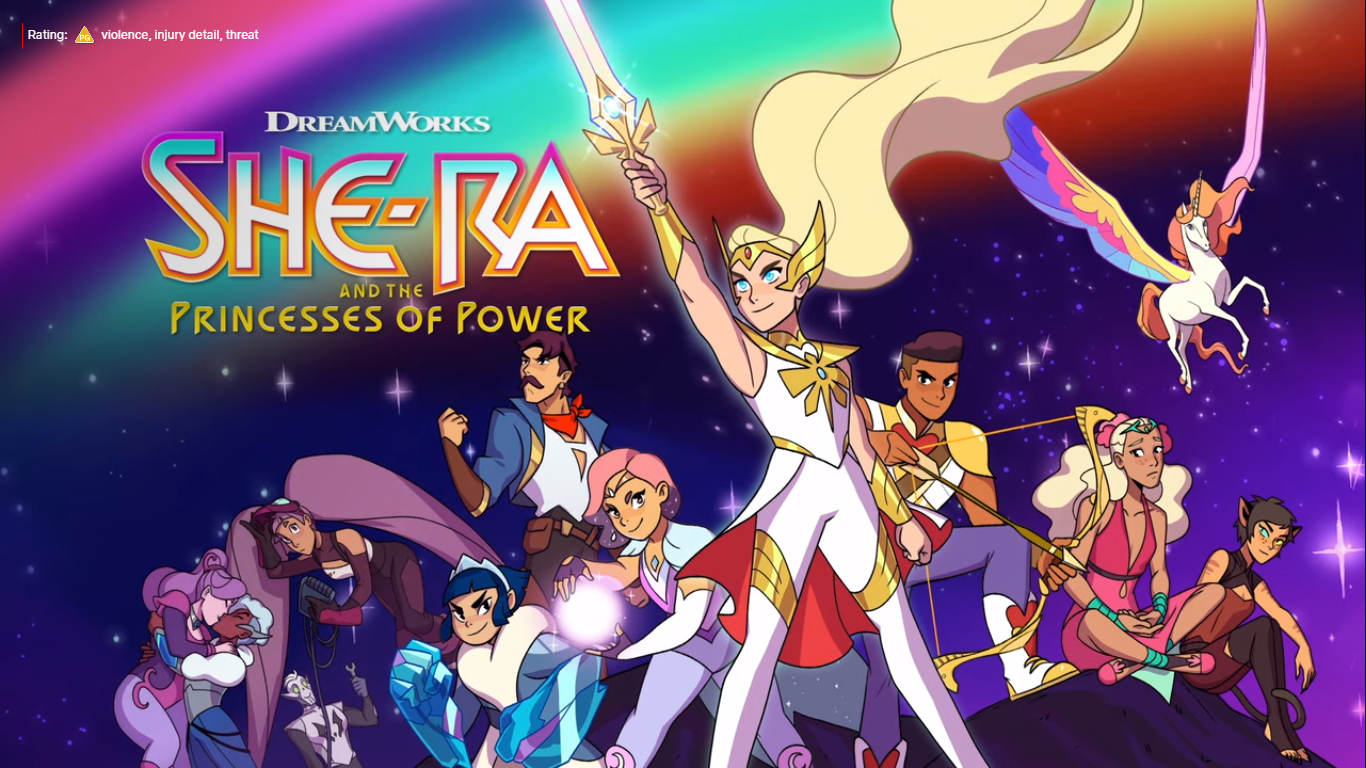
My favorite show of all time, Steven Universe, finished up this year. And while that show was a shoe-in for my best show of 2019, it only made it to position 2 this year. Steven Universe in 2019 boasted the end of its regular show, the movie, and the beginning of its epilogue series, whereas Steven Universe in 2020 aired just a few episodes to conclude its run.
Meanwhile, She-Ra came along this year and absolutely knocked it out of the park. I remember when this show first aired at the end of 2018, and there were tons of moments when I couldn't believe what I was watching. I think I shouted aloud at least once per episode in She-Ra's first season. Because even if She-Ra's queerness isn't as explicit in season 1 as it would be later, the show is absolutely drenched in queer culture. The way characters interact with each other, their dialogue, their jokes, their struggles, the way they see the world, all of it is queer on a very deep level. Watching the first season of She-Ra was mindblowing, because I'd never really seen myself portrayed on TV like that before.
That was two years ago. Since then, She-Ra's middle seasons have gotten a bit stuck in the weeds of its own plotting. There's been some great moments, episodes, and characters, but nothing as amazing as that first season. Until now.
She-Ra's final season, which aired this year, was absolutely incredible. Plot developments came fast and frequently. Catra became an actual for-real protagonist just a few episodes in. Her new dynamic with Adora, Glimmer, and Bow was deeply cute. Entrapta, who's slowly solidifed her position as my favorite character over the show's runtime, got a LOT more screentime than last season, when she was pretty much absent.
Everybody's talking about the kiss in the final episode. It's all over the internet. And yeah, when that happened, I breathed a huge sigh of relief that showrunner Noelle Stevenson actually made it to the finish line on that one. But even before that, I knew that She-Ra had done something special.
Maybe its middle seasons were a compromised vision, or maybe the writers had a great beginning and ending planned but couldn't find enough interesting stuff to do in the middle. It doesn't matter. What She-Ra brought to the screen stole my heart. I have so much love for its characters, its world, and its unabashed queerness. This show was special.
2) Steven Universe Future
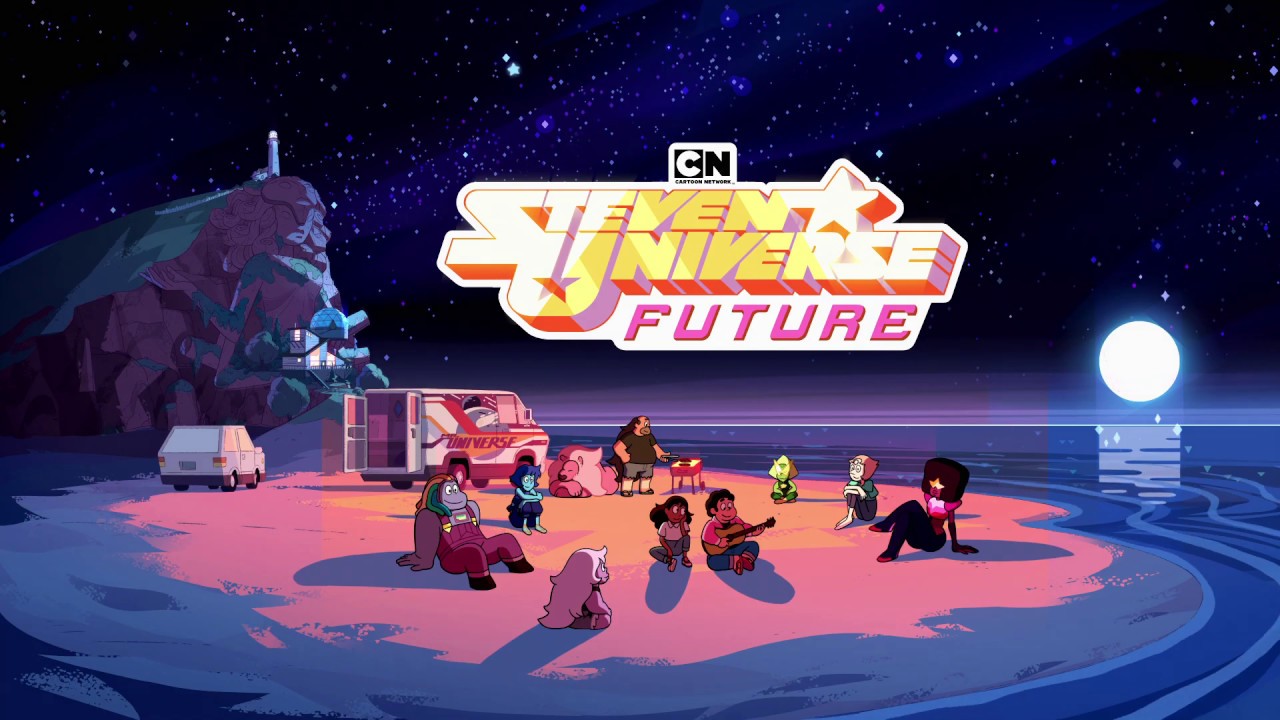
I truly cannot say how special it was that two of my favorite shows, both very queer LGBT cartoons that concluded this year, had nonbinary creators and showrunners. Both of them came out as nonbinary very recently, and it really means a lot that these very visible creators are helping to normalize nonbinary genders.
So, Steven Universe Future. Only ten episodes aired this year to finish off the journey, but whoof, they were big episodes. This year, Future finally delivered on its promise to follow up on the emotional consequences of the show's events on Steven. He turned into a massive kaiju, got a big climactic hug, then got therapy and found a way forward in his life. Certainly the LGBT community needs to hear that message of hope, and the importance of self-care and leaning on others when you need to, but it's a pretty relatable message for everyone, I think.
I'm going to miss these characters. Everyone from Steven to Smoky Quartz. But it's also the most fitting ending they could have given them. Sometimes you don't know what happens next, and that's okay. What a thing of beauty the Crewniverse has put out into the world with this show.
3) The Haunting of Hill House
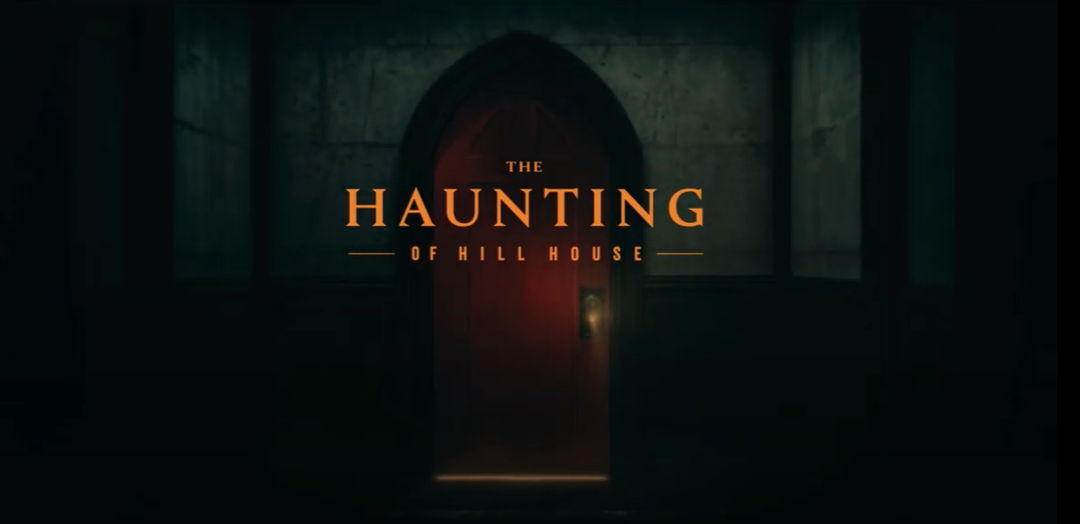
I think the highest praise I can give this show is that it had me jumping at shadows for weeks. I had to sleep with the light on until long after we finished it.
So, first of all: The Haunting of Hill House is a deeply emotional story about family trauma and reconciliation. It has a fascinatingly unusual structure: the events of the story only really take place over a couple of days, and the majority is told in flashback. Every character is put thru the wringer, but this does help each of them to finally understand how the trauma of Hill House affected them, and how to move forward from that.
The show's cleverest trick, however, is in its easter eggs. At some point while watching the show, viewers will probably start to notice ghosts hiding in the background of shots. No attention is called to them, and they aren't all that relevant to the plot. They're just there, mostly as a way to illustrate how haunted Hill House is. Over time, the background ghosts become so obviously placed that they're impossible to ignore, and you'll spend the rest of the series keeping an eye out for them. I knew about the hidden ghosts going into the series, so I was on the lookout from episode one.
Last year, I watched a horror movie called It Follows, about a monster that possesses people and constantly, slowly walks towards its victims. This makes the main characters paranoid, as they keep an eye out for anybody walking slowly towards them, but it also makes the viewer paranoid as they watch in the background of shots for any potential suspects. Hill House has exactly the same effect. It makes you paranoid, it makes you look for figures even when there are only shadows. It's the kind of mental conditioning that followed me back into the real world. It was, well, haunting.
But I wouldn't put a show that traumatized me this high if that trick was all it had up its sleeve. Hill House is filled with good storytelling choices from start to finish. It's pretty hard to watch at times, and I had to force myself to watch episodes that I knew would be on the gorier side, but it was absolutely worth it, and it's a story that'll stick with me for years.
4) Princess Principal
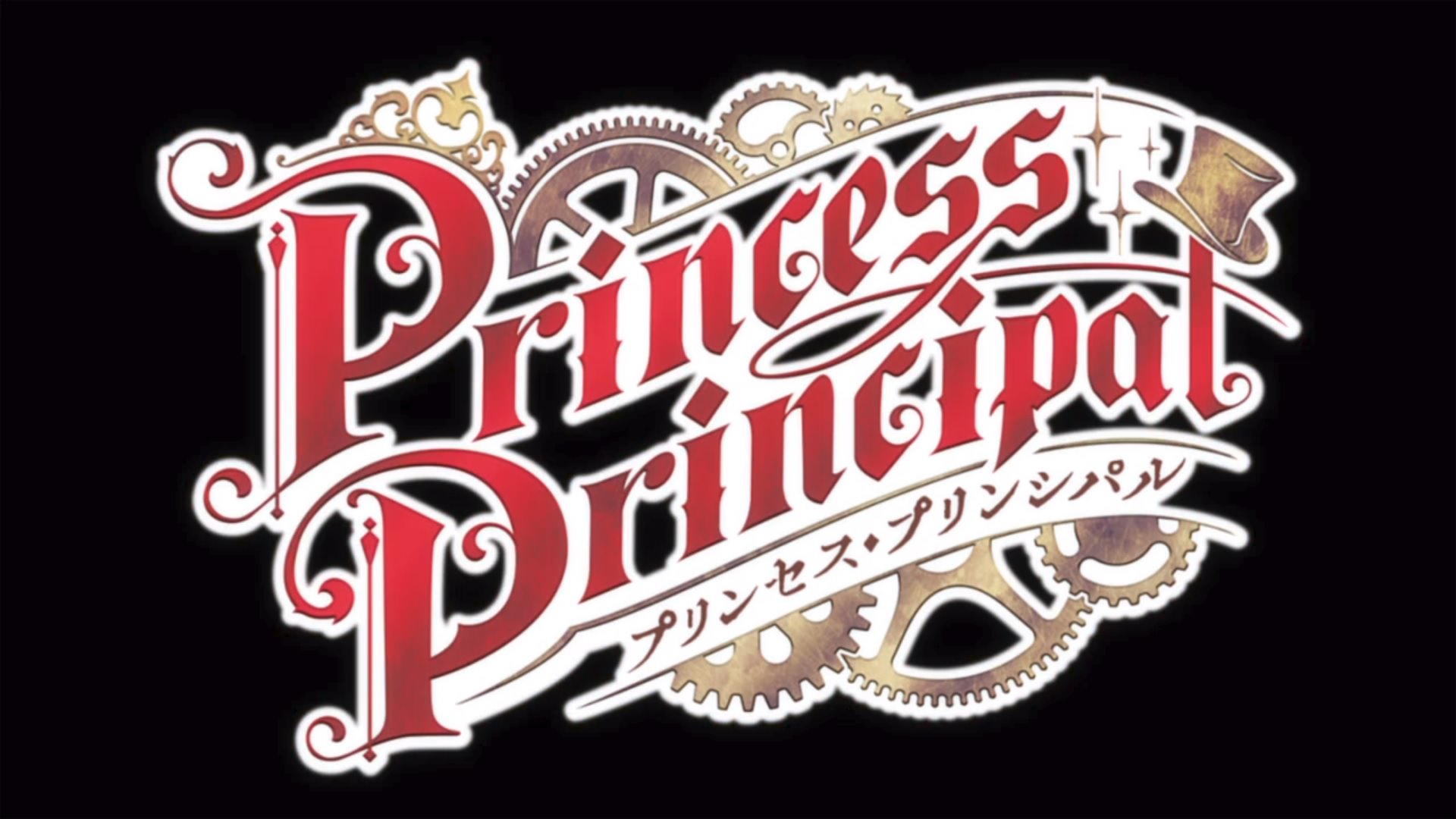
Princess Principal is an anime about a group of teenage super-spies in a war-torn and poverty-ravaged Victorian London, from the studio that made the ultra-gay series Flip Flappers. It is *exactly* my shit.
This one's pretty conceptually simple. Each of the girls has some special ability, each has a tragic background that brought them into their spy group. There's some echoes of Prince and the Pauper with the two leads, who were childhood friends and have found each other again after a long absence as the show's story begins.
It's presented out of chronological order, but the show is so episodic that it doesn't really matter; each episode is fairly self-contained. The plot almost never matters except as a vehicle to show some cool spy stuff, and mostly to deepen our understanding of the characters and their relationships with each other. Of course there's a train heist, of course there's a daring climax full of twists and double-crosses. All the essentials are here.
Listen, I'll be honest: spies aren't usually my genre, so this wasn't necessarily going to be a slam-dunk. The thing is, this series is presented as more of a heist show, given the self-contained nature of each mission, and heist shows *are* my genre. But it's more than that. This show has a deep, rich, and yes, very queer heart. The characters stuck with me, and I'll be thinking about this for a while - especially since there's a series of movie sequels planned, which will hopefully begin to wrap up the plot that the studio couldn't quite find a satisfying conclusion to in the show. Not that it matters; the girls have each other, and that's enough.
5) The Mandalorian
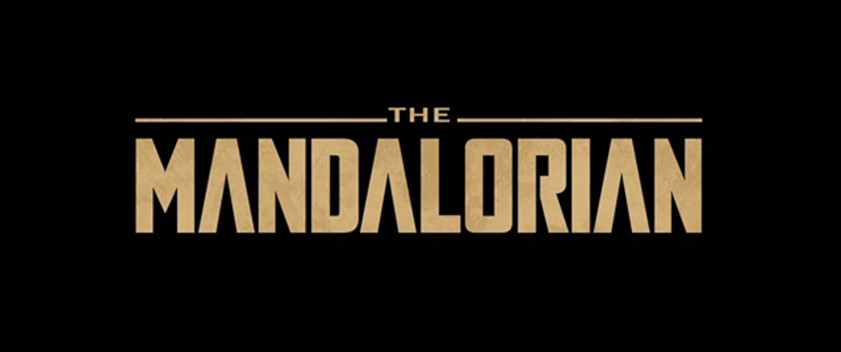
I probably should have guessed that a show from these creators would be good. Jon Favreau wrote and directed some knockout stories with visual spectacle over the last couple decades, including Iron Man and Zathura. Dave Filoni, meanwhile, cut his teeth working on Avatar: The Last Airbender, and then moved on to be an executive producer on recent animated Star Wars shows The Clone Wars and Rebels.
But I didn't guess it would be this good. The thing is, The Mandalorian is very basic. Its main two characters (The Mandalorian and The Child) don't even have names for the vast majority of its first season. That first season isn't all that interested in telling a serialized story, and is more interested in telling self-contained stories about their adventures.
The storytelling in a lot of the first season's episodes are simple, and yet visually rich and subtle, that it feels like an animated show that's been made in live-action. The Mandalorian is a very likable protagonist, and his supporting cast is similarly fun. It's also really cool to me that Mandalorian was a pioneer of TV & film visual effects all on its own. After being burned by Star Wars Episode IX late last year, I was pleasantly surprised to find this show was a much more welcome Star Wars experience.
I haven't seen the second season yet, although I've been spoiled to heck about it. That's lowered my expectations for the second season quite a bit; the first season had almost no fanfare to it, and was merely a really well-told story.
6) BNA: Brand New Animal
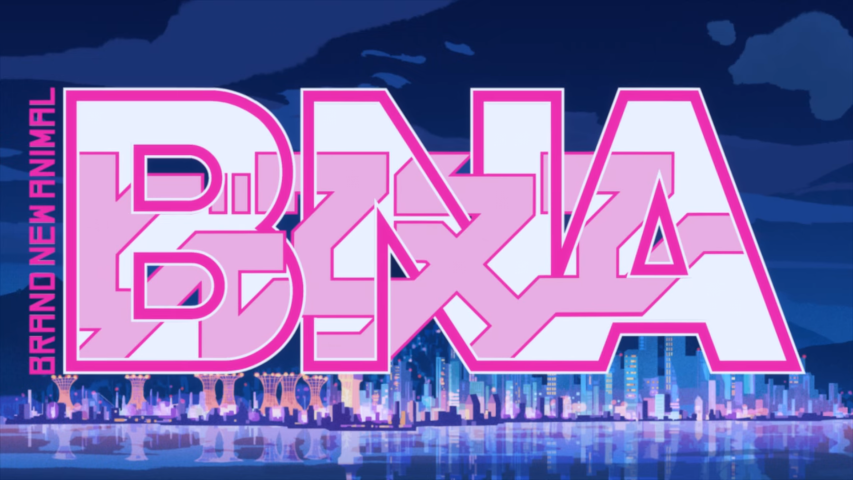
Earlier this year, I rewatched Little Witch Academia, Trigger's show about a school for witches that aired a couple of years ago. I didn't put it on this list because I've watched it in its entirety before, but this did remind me that, yes, Little Witch Academia is still one of my favorite shows of all time. Just deeply good from start to finish.
BNA: Brand New Animal, Trigger's follow-up to Little Witch, is substantially less good. If Little Witch was "let's make an anime out of Harry Potter," Brand New Animal is "let's make an anime out of Zootopia." But Little Witch tweaked a lot of elements, clarified some themes, and brought a strong cast of characters to the table. Brand New Animal doesn't really do any of those things.
Why so high on the list? Well, it's got a shapeshifting tanuki protagonist and a surprising undercurrent of queerness in places, so it's basically my kryptonite. The first two-thirds of the show has a lot of fun concepts for its episodes. The baseball episode went viral immediately, but I related hard to the episode where Michiru made a dolphin friend and went to a human party to pretend to be human together for a night. It just hit at some deeper emotions than I expected.
I like Michiru's childhood friend-turned-rival, I like the music, I LOVE the visual aesthetic (which is darker and cooler than Little Witch, despite having the same director), and I adore all the transformations. The ending of this show really lets it down, but if you adapt Zootopia without really changing anything, that's gonna happen. BNA is a good reminder that the prey-animals-as-racism-allegory thing really really really wasn't a good idea.
Honestly, this probably shouldn't be as high as it is, from a more objective critical standpoint. I just liked it a lot, so it gets extra points.
7) Community
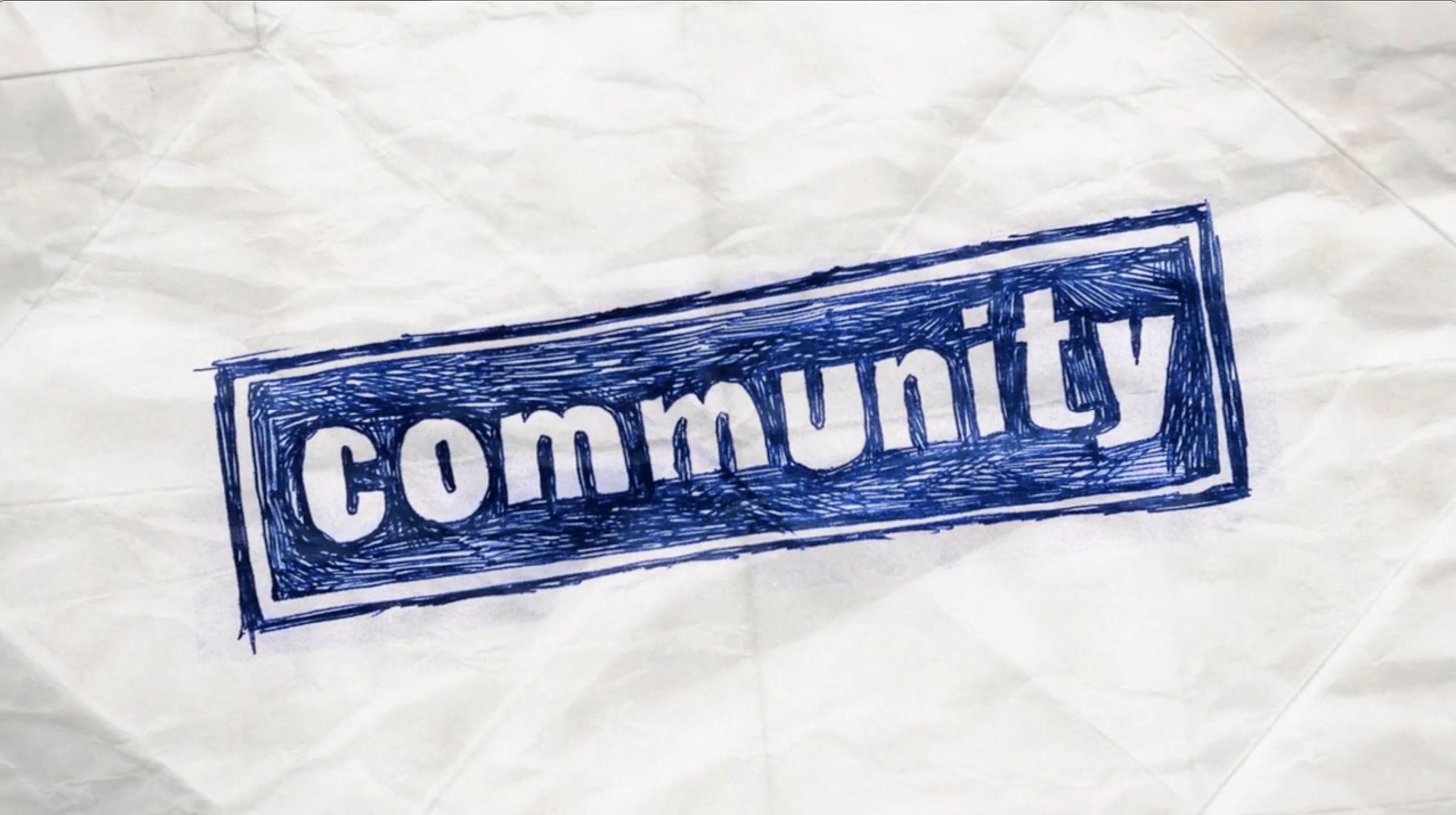
This was the year I finally buckled down and watched some of the great live-action comedies of the last few years, which landed at positions 7 and 8 on my list. After dabbling in the series before, and rewatching the Yahtzee episode about half a dozen times, I finally sat down and pretty much binged Community seasons 1-3 in just a few weeks. I tried season 4, I tried hard, but I just couldn't get thru it. Never mind; season 3 gives the show a really excellent ending anyway.
Community's kind of known for its genre pastiches. The zombie episode, the documentary episodes, the one where they go to space, the Dungeons & Dragons episode, and of course the paintball wars. There's a Halloween special all three years, there's a stop-motion animated Christmas episode, there's a whole lot of jokes about Glee. And yeah, experiencing a lot of this for the first time was very cool. By midway thru season 2, you don't know what you're gonna get when you turn on a Community episode, and that's fun as heck.
I think what really hooked me on the show was Abed. Because it turns out, a lot of the genre pastiches aren't there just for the fun of it, but because Abed sees the world differently from everybody - as a story, an adventure, a TV episode. The more the study group bonds together, the more they all start to see it too. Community's cast is the most self-aware about their own narratives of any set of characters I've ever encountered. "I'm doing a bottle episode!"
Community is a show about the powers of story and love, and how those two interact with each other. In 2020, that was a story I needed to hear.
8) The Good Place

I've watched The Good Place in very small chunks. I saw the first season when it came to Netflix, once the whole season had aired and I'd heard that this was a show worth watching. Early in 2020, I sat down to watch the second season, enjoyed it, and then dropped off again. I almost didn't come back.
What brought me back to finish the show was The Good Place in even smaller chunks. NBC has been aggressive about putting 3-4 minute segments of the show on Youtube, clips that stand on their own and establish some funny bit of worldbuilding, or that just tell a good joke or share a heartwarming moment. I got a sense of the show's second half in small bits, until finally I relented and finished the whole thing.
Long before I finished, my roommates and I quoted and referenced the show's mythology verbatim to each other on a regular basis. Things like the Time Knife and Jeremy Bearimy are now common parlance in my household.
I bring this all up to establish the strength of this show's worldbuilding. Oh, it's coming from a very specific worldview; as my partner pointed out, it's about a group of liberals who rationally argue their way to a better afterlife system. But the world is very fleshed out, if only for comedy purposes, and many of the little details they've come up with are clever and funny.
As with all of my favorite shows this year, tho, The Good Place wouldn't work half as well without a strong cast of characters. I love Michael and Janet's haphazard attempts at understanding humanity, and I love the earnestness mixed with anxiety that defines Chidi and Eleanor's deep love of each other. When Chidi came to the realization late in the show that The Good Place wasn't really a place, but was just time to spend with your loved ones, I cried. Chidi and Eleanor have a relationship that's good at making me cry.
This was a rough, rough year. And one of the things that I found the hardest was being reminded of my own mortality and impermanence as the pandemic has continued. And ultimately, amidst all the laughs, The Good Place grapples with death in a sweet and heartfelt way, and it believes in the inherent goodness of humanity.
9) Zumbo's Just Desserts
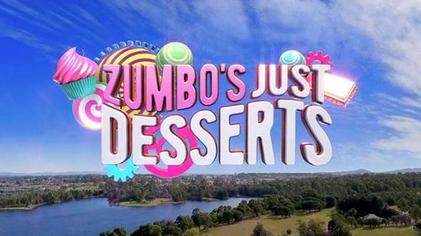
I watched a fair bit of reality television this year, from The Amazing Race to The Bachelor. Especially over the summer, I needed some low-effort television to pass the time. Zumbo's Just Desserts surprised me the most with how fun and engaging it was.
Just Desserts is a dessert-making competition set inside what appears to be a lab from Willy Wonka's chocolate factory, hosted by dessert wizard Zumbo. Each episode is divided into two parts. In the first half, contestants are challenged to create a dessert inspired by a simple prompt, like "hot and cold" or "magical" or "kid's birthday." In the second half, the two lowest-scoring contestants go one-on-one in a competition to duplicate a dessert designed and crafted by Zumbo himself. This dessert usually has some strange or difficult twist, around a dozen separate components, and intricate detailing. I was particularly fond of an ice cream cone that had all the layers of nachos inside it, and a chocolate hat that melted to nothing under hot liquid.
As with other reality shows, it's cool to see the contestants' journey over time, and how they change and hone their skills. But more than other reality shows, Zumbo has a gee-whiz "how did they do that?" factor that kept me addictively coming back for more. I'm extremely hopeful that once the pandemic lifts, Netflix renews this show for another tasty season.
10) Keep Your Hands Off Eizouken
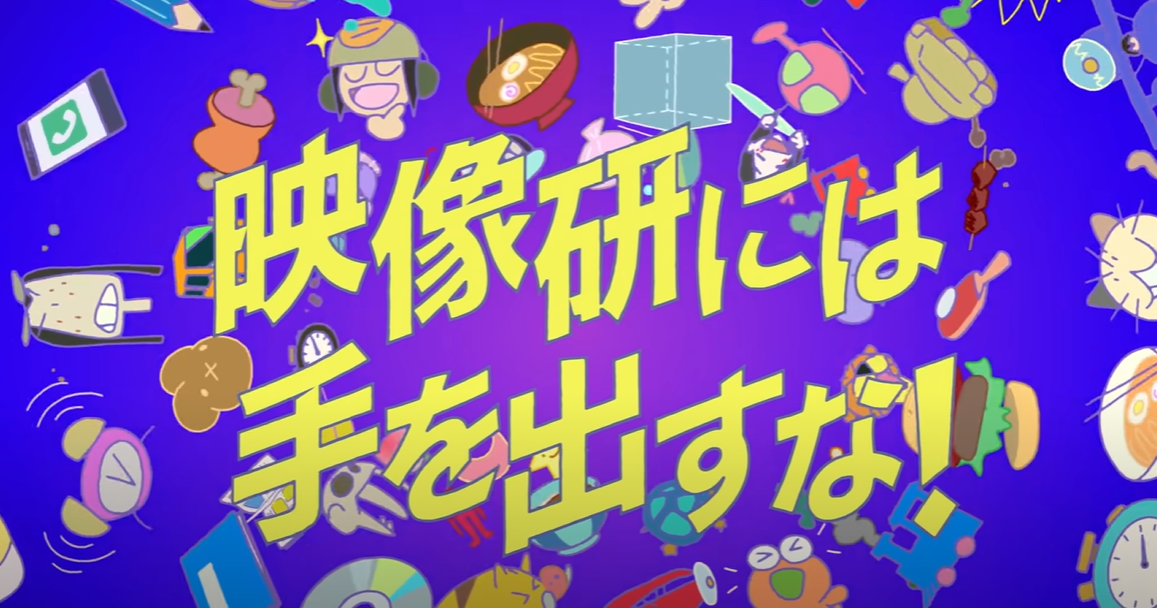
There were a lot of great opening title sequences in shows I watched this year. Just to name a few, Princess Principal, Brand New Animal, and The Haunting of Hill House all have impressive animated openings with great songs. But Eizouken brought Japanese hip-hop to the party, and easily had the best title sequence of any show I watched this year. I was humming "Easy Breezy" as soon as I learned of this show's existence.
The Japanese title for "Keep Your Hands Off Eizouken" translates more literally to "Don't Mess With The Film Club." It follows three high school girls (the story girl, the animator, and the business one) as they realize their dream of making anime. And despite the significant challenges of making anime on a high school budget while also attending classes, they manage to pull it off, establishing their presence as a formidable one - hence the title.
Eizouken has been called a love letter to a lot of things - anime both general and specific, stories in general, the power of imagination. At least once an episode, the imaginary world intrudes on the real one, and we see the characters not merely designing their creations on paper, but experiencing them on a life-size scale, letting them tinker with their machines like mechanics, and go on wild adventures. The story stays focused on their production of the anime, but the little asides illustrate how these three see the world around them.
And I appreciated that. It's pretty close to how I interact with the world, where every little thing is potential fuel for a story, or at least for me to imagine what it might be like to live in a place that's a little more fantastical.